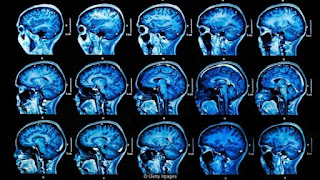Statistics of Migraine
Migraine is a public health issue with serious social and
economic consequences.
- Healthcare and lost productivity costs associated with migraine are estimated to be as high as $36 billion annually in the U.S.
- In 2015, the medical cost of treating chronic migraine was more than $5.4 billion, however, these sufferers spent over $41 billion on treating their entire range of conditions.
- Healthcare costs are 70% higher for a family with a migraine sufferer than a non-migraine affected family.
- American employers lose more than $13 billion each year because of 113 million lost work days due to migraine.
- U.S. headache sufferers receive $1 billion worth of brain scans each year.
- Migraine sufferers, like those who suffer from other chronic illnesses, experience the high costs of medical services, too little support, and limited access to quality care.
- Beyond the burden of a migraine attack itself, having migraine increases the risk for other physical and psychiatric conditions.
Migraine remains a poorly understood disease that is often
undiagnosed and under treated.
- In 2018, there are less than 500 certified headache specialists in the U.S. and 39 million sufferers.
- More than half of all migraine sufferers are never diagnosed.
- Most of migraine sufferers do not seek medical care for their pain.
- Only 4% of migraine sufferers who seek medical care consult headache and pain specialists.
- Although 25% of sufferers would benefit from preventive treatment, only 12% of all sufferers receive it.
Despite the vast prevalence of migraine and its serious
effect on individuals, families and the economy, research into the causes and
treatment of migraine is severely underfunded.
- In 2015, NIH funding for migraine research was just $.50 per sufferer.
- The Migraine Research Foundation was founded in 2006 to address this lack of funding.
- Since 2006, MRF has awarded more than $3.75 million in research grants in such areas as basic science, genetics, childhood migraine, and studies investigating new treatments and therapies.
- 100% of all donations go to fund research and help sufferers as members of MRF’s Board of Directors cover all the operating expenses.
Submit your #abstracts via: https://bit.ly/2HlLuhx to present your work at the International #Conference on #Alzheimers, #Dementia and Related #Neurodegenerative Diseases on December 03-04 at Madrid, Spain with theme of Leading #Advancements and #Remedies in the #Neurodegenerative Disorders




Comments
Post a Comment